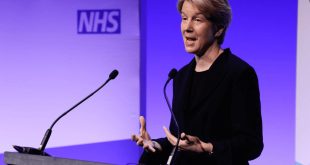Following the confirmation of the UKGC’s anticipated credit card ban, industry strategic consultancy Regulus Partners focuses on how the gambling industry should embrace diversity of outlook when it comes to the imposition of new policies, while at the same time insisting on intellectual rigour and honesty.
The subject of independence and the need to exclude bias from vested interest are recurrent themes in the policy debate on gambling worldwide. However, ‘independence’ is often characterised in narrow terms, indicating simply a freedom from the influence of industry. This perspective fails to recognise both the presence of a much wider array of vested interests and the propensity of all sides to employ partisan means to pursue those interests. In this article, we argue that those with ‘skin in the game’ will always try to affect its outcome; and that rather than obsessing over independence, governments, regulators, operators and researchers should insist instead on scientific rigour, intellectual tolerance and the creation of conditions of trust.
In Great Britain, the ruling Conservative Party has pledged to undertake the first major review of the nation’s gambling laws in two decades via an “independent group of experts”. This group, we are told, will consist of representatives from “the regulator, medical profession, industry bodies and campaign groups”. It ought to be immediately apparent that trade bodies and campaign groups will stretch any definition of independence; but what should we make of the claims to “independence” of other likely contributors, including those from research and public health?
The backdrop to the review is concerning. In recent months, we have seen repeated examples of misrepresentation of survey data; the rejection of scientific enquiry in favour of a priori views; the use of academic journals and research grants to influence regulatory and fiscal policy on gambling; and apparent attempts to meddle from other government departments. So far, so very ‘Big Tobacco’. What is striking is that these attempts to influence policy originate not from the big, bad capitalist gambling industry; but instead from senior executives and researchers in public health.
The publication last month of data from the 2018 Health Survey for England provides an example of the bias that is creeping into the representation of official data on gambling and gambling harm. The ‘key facts’ from the survey, highlighted by the National Health Service (‘NHS’) were as follows: in 2018, 43% of adults in England had a long-standing medical condition; 17% of women and 18% of men had ever had asthma; more than half of all adults were at high risk of chronic disease due to waist size and body mass index; around one-quarter were physically inactive; and 40% had participated in at least one form of gambling (excluding the National Lottery) at some point or other.
The decision to focus on rates of gambling participation rather than gambling disorder seems significant. It suggests that NHS senior management considers the very act of occasionally betting on a horse race or playing a game of bingo to be an unhealthy activity of equal significance to having asthma or a long-standing illness. This may only be an issue of presentation but it corresponds with attempts by some in public health to depict gambling as an inherently harmful activity.
The chief executive of NHS England, Simon Stevens took the opportunity afforded by the survey’s publication to level a number of criticisms (entirely unsubstantiated in the data) about gambling addiction and industry practices. Curiously missing from his commentary were the (rather important) facts that in 2018, rates of both gambling participation and gambling disorder in England fell to historic lows.
This in turn raised the question of why it was that the 2018 data prompted such strong sentiments from senior management at the NHS compared with previous years. The 2015 survey, which showed gambling participation in England at 62% of adults (including National Lottery) and a gambling disorder rate of 0.9% prompted no such comments; and it was a similar story in 2016 when gambling participation was 56% and gambling disorder was 0.7%. For reasons that remain unclear to us, it is the 2018 data – which shows gambling participation at 54% and gambling disorder at 0.5% – that has precipitated such stridency.
A few weeks later, fresh concerns were raised by NHS England’s national mental health director, Claire Murdoch. She observed that gambling-related hospital admissions (defined in the past as Finished Admission Episodes or ‘FAEs’) more than doubled between 2012/2013 and 2018/2019 – from 150 to 321. It is difficult to verify independently these claims as the most recent NHS data we can find on gambling-related admissions (published in August 2019) covers the period 2015/16 to 2017/18. Assuming this is the comparable dataset then gambling-related admissions may in fact have declined slightly in 2018/19 – down from 335 to 321 – or around 0.002% of all FAEs. Somehow this fact eluded the attention of the NHS England press office which issued a press release that seemed designed more to sway opinion than to inform debate. The possibility that any increase in the use of treatment services may actually be a positive development (given long-standing concerns about the low level of treatment-seeking for gambling disorder) was also disregarded.
The problem seems to lie not so much in the data collection or analysis but in skewed interpretation by senior executives. The NHS’s own guidance notes advise caution when considering data on hospital admissions: “Changes to the figures over time”, it clearly states “need to be interpreted in the context of improvements in data quality and coverage (particularly in earlier years), improvements in coverage of independent sector activity (particularly from 2006-07) and changes in NHS practice. For example, apparent reductions in activity may be due to a number of procedures which may now be undertaken in outpatient settings and so no longer include in admitted patient HES data. Conversely, apparent increases in activity may be due to improved recording of diagnosis or procedure information”. The message is simple – caution should be exercised when attempting interpretation of the data (particularly given the relatively small sample sizes involved).
Understandably, concerns have been expressed that the intervention of NHS senior management might be politically motivated. After all, the Stevens and Murdoch press releases followed directly on from the Health Secretary, Matt Hancock’s pledge to undertake a review of gambling legislation (looking in particular at the questions of online stakes and prizes, the use of credit cards and the establishment of a statutory levy to fund harm prevention services). Mr Hancock’s concerns are valid and warrant examination – but they currently fall within the responsibilities of the Department for Culture, Media and Sport (with involvement by HM Treasury on a levy and the Gambling Commission on credit cards) and not the Department of Health and Social Services. At a time when the very future of the DCMS is a matter of speculation, apparent attempts by Health to annex policy (without review) are likely to reinforce fears of an ideological threat to regulated gambling in Great Britain.
At around the same time as the NHS announcements, an article appeared in the prestigious medical journal, The Lancet calling for yet higher taxes on those who choose to gamble, greater marketing restrictions and system-wide interventions (i.e. covering the entire market rather than specific products) – all in the name of harm reduction. The lead author, Professor Elizabeth Goyder of the University of Sheffield seemed to acknowledge the sparseness of direct evidence to support such interventions but claimed that apparent effectiveness of similar policies in the domains of tobacco, alcohol and sugar-sweetened drinks justified action. Success elsewhere (which we must take on trust) “should give policy makers confidence that similar policies for gambling would also be effective if successfully implemented.”
The article also raised the issue of pernicious influence from the gambling industry, citing the “threat posed by vested interest” to public health plans. The implication is that industry involvement in policy debate is necessarily malign – something taken as a given fact rather than a hypothesis to be tested. This view does not address the challenge from LaPlante, Gray and Nelson (2019) that “the only way to determine what influence industry funding has had on research findings is through systematic empirical work. Selected stakeholder perceptions of industry funded research are insufficient proof of undue industry influence”. Simply because the tobacco industry employed crooked means to evade its responsibilities (a generation or more ago) does not mean that the same is true of all other sectors of commerce (including gambling).
What Professor Goyder did not fully disclose in her article is that she is lead investigator in a £600,000 study of gambling-related harms commissioned by the National Institute for Health Research (‘NIHR’). She therefore has a ‘vested interest’ in the debate on gambling policy. While the article acknowledged receipt of funds, the authors failed to mention that the NIHR has specifically asked them to review gambling harms (although at one point they note that “reviews of the evidence directly related to gambling harm are currently underway”). The failure to mention their own involvement in this work is curious; the suggestion that action might be taken irrespective of findings from their review, baffling.
These examples from the NHS and the University of Sheffield are suggestive of a coordinated campaign to position gambling as the ‘new tobacco’ – an activity that is inherently harmful. In November, an article appeared in the Australian and New Zealand Journal of Public Health (Daube et al., 2019) that used Kotter’s model of effective change in order to “provide an avenue for gambling to be recognised as both a societal and global health problem”. The eight steps listed in the journal article are as follows: 1) establish a sense of urgency (“about the harms from gambling”); 2) form a powerful coalition; 3) create a vision (“to highlight the impact of gambling harm”); 4) communicate the vision (including “use of media-based advocacy” or PR); 5) empower others to act on the vision; 6) plan and create short-term wins (“to create momentum”); 7) consolidate improvements and produce still more change; and 8) “consistently implement public health approaches when advocating for gambling reform.”
The article highlights the issue that some notionally independent researchers appear in fact to be ideologically motivated and raises the question of whether it is possible to campaign against gambling and at the same time retain research credibility. As Gambling Commission director Tim Miller commented in Britain’s Parliament last year, “the independence of research can … be challenged when you have researchers who are starting to get into that kind of campaigning space. We want proper independent research and there is a space around gambling and a need for researchers, campaigners and policymakers. We have had too many examples of them wearing interchangeable hats”. He was spot on.
This is problematic precisely because it has the potential to skew harm prevention priorities. For example, it seems highly plausible that the nature of gambling-related harms may be underestimated in terms of severity, longevity (individuals may experience problems – such as indebtedness, diminished employment prospects or family breakdown – long after they have stopped gambling) and impact on third parties. It also seems likely that one of the most effective means of reducing rates of gambling disorder is to focus on relapse prevention. However, the desire to amplify the number of people directly harmed (for example by including anyone who has ever tried to win back what he has lost) may actually serve to undermine attempts to address harm severity and longevity – diverting resource and attention from targeted interventions and policies to population-wide initiatives.
The question of independence in relation to responsible gambling programmes is not simply a matter of academic debate. The fear of influence (or perceived influence) by the gambling industry on those involved in research, education and treatment is threatening to disrupt positive work in each of these domains.
How then should the gambling industry respond? The answer may be found in the words of former First Lady of the United States of America, Michelle Obama – “when they go low, we go high”. As the FOBT debacle showed so clearly, fighting spin with spin only creates confusion; and that old canard that gambling just needs better PR is palpably false (and disastrously counterproductive). Licensees need to face up unflinchingly to unpalatable facts about the negative consequences of their operations; and to consider with open minds the possibility that things may need to change (including for example, speed of play or staking limits on online slots); and they need to do this in all markets in which they operate rather than solely in those where the political heat is on or regulatory scrutiny is increased (which is not to say that all policies suit all markets – but broad principles of harm minimisation should be international, in our view). An industry that seeks sustainability has nothing to fear from good science and everything to fear from bad science.
Only by moving to the “high ground” of scientific integrity can operators hope for a fair review, even though this may lead to tighter (but hopefully considered) regulation in certain areas. Over time, it will allow them to regain the trust of critical commentators in Parliament and the press (if accompanied by the willingness to spend time building relationships); and it will put them in a stronger position to debunk bogus claims (and to insist that their regulator does likewise). It may also open up the prospect of genuinely collaborative problem-solving – for example, through direct and constructive engagement with the NHS – rather than perpetuating the grievous waste of special-interest lobbying.
Typically, Britain’s gambling laws are reviewed once every 15 to 25 years. It is therefore imperative that the next review (which we may expect to commence this year) is conducted in a suitably robust, scientific and open-minded fashion. The process of review should be mature enough to accept that different groups will have different reasons to care about how gambling is legislated for; and prepared to weigh evidence from a range of vested interests (from all sides of the policy debate). It should embrace diversity of outlook while at the same time insisting on intellectual rigour and honesty.
More broadly, our obsession with independence may in fact be misplaced. Far more valuable than independence are integrity, tolerance and trust. Finding ways to construct a review around these qualities – essentially good governance, open evidence sharing (without the constant risk of it being spun) and honest dialogue – is critical if it is to achieve anything worthwhile and lasting. This applies to all sides of the debate – not just the pantomime villains of industry.
__________
Content provided by Regulus Partners










